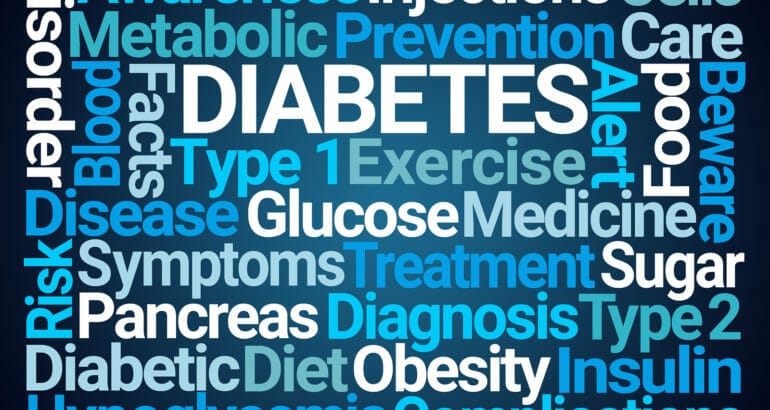Diabetes is a chronic disease that affect the way your body regulates blood sugar, or glucose. Glucose is the fuel that feeds your body’s cells, but to enter your cells it needs a key. Insulin is that key.
Type 1 diabetes is usually diagnosed in children and young adults, and was previously known as juvenile diabetes. Only 5% of people with diabetes have this form of the disease. People with Type 1 diabetes don’t produce insulin.
Type 2 diabetes develops most often in middle-aged and older adults. You are also at higher risk if you are obese, have a family history of diabetes, or do not exercise. People with Type 2 diabetes don’t respond to insulin as well as they should and later in the disease often don’t make enough insulin.
Both types of diabetes can lead to chronically high blood sugar levels that increase the risk of diabetes complications.
Many people are not aware that they are at risk of being pre-diabetic or diabetic. Be sure to ask your medical provider to test for signs of potential risks of diabetes.





